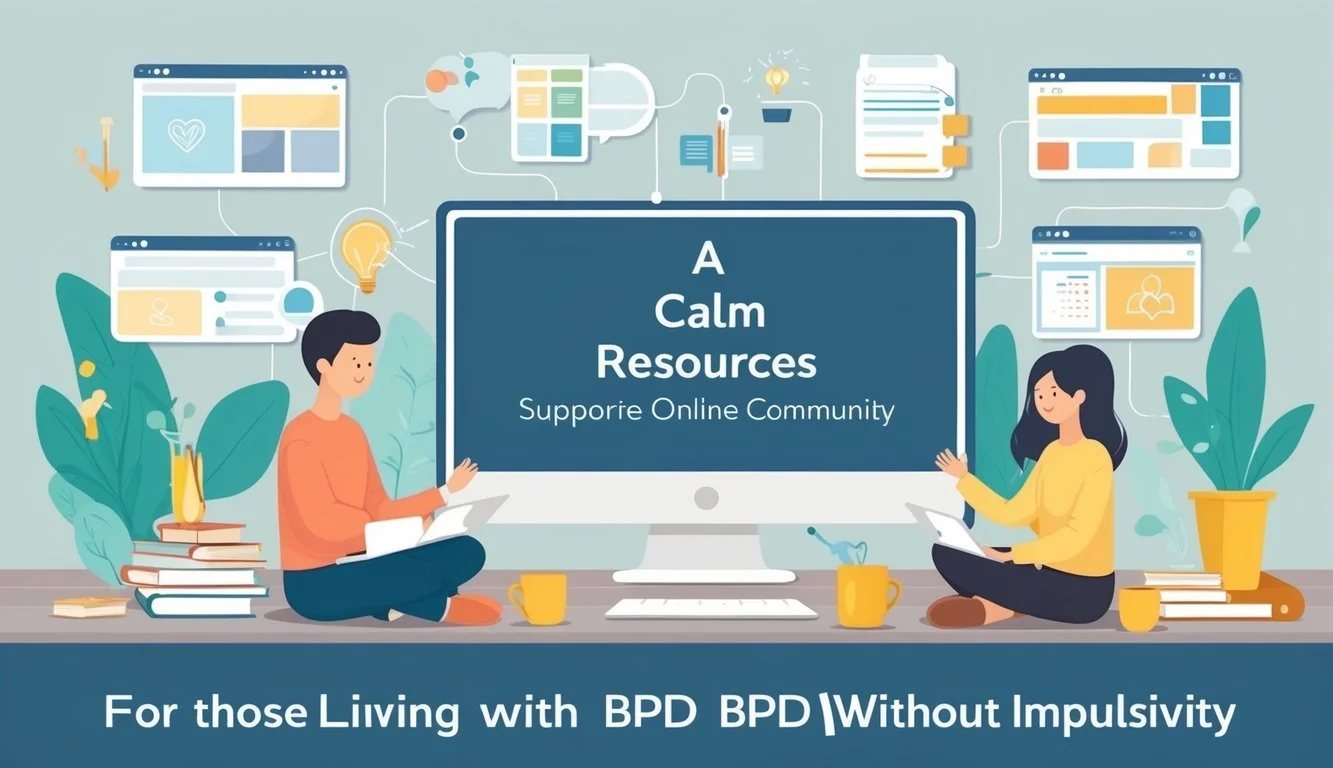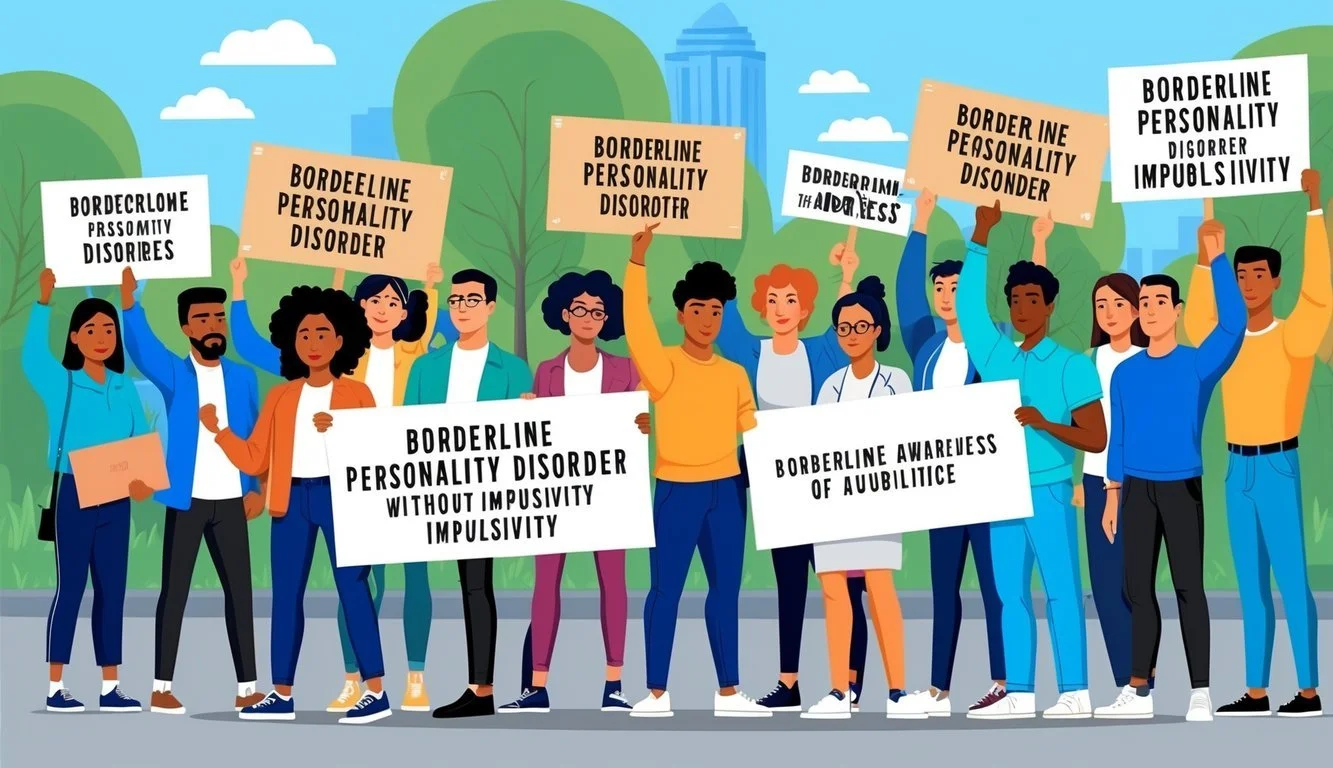Exploring BPD Without Impulsivity: Insights from Reddit Discussions
Borderline Personality Disorder (BPD) is typically associated with impulsivity as one of its key symptoms. However, some individuals may experience BPD without prominent impulsive behaviors. This variation has sparked discussions on Reddit forums dedicated to BPD and relationships affected by the disorder.
BPD without impulsivity can manifest as hypersensitivity, fear of abandonment, intense emotions, and difficulty maintaining stable relationships, even in the absence of reckless or self-destructive actions. This presentation may be referred to as "Quiet BPD" and can be challenging to recognize due to its less overt nature.
Reddit users have shared experiences of partners displaying BPD traits without the stereotypical impulsive behaviors. These accounts often describe relationships marked by emotional intensity, frequent mood shifts, and complex interpersonal dynamics. Understanding this nuanced presentation of BPD can help individuals better navigate their relationships and seek appropriate support.
Understanding BPD
Borderline Personality Disorder (BPD) is a complex mental health condition characterized by intense emotions, unstable relationships, and impulsive behaviors. While impulsivity is often associated with BPD, its presentation can vary among individuals.
Defining Borderline Personality Disorder
BPD is a psychiatric disorder marked by a pervasive pattern of instability in interpersonal relationships, self-image, and emotions. Key symptoms include fear of abandonment, intense and volatile relationships, identity disturbances, and chronic feelings of emptiness.
Individuals with BPD may experience rapid mood swings and struggle with emotional regulation. They often have a history of unstable relationships and may engage in self-harming behaviors.
Diagnosis requires meeting at least five of nine criteria outlined in the DSM-5. These criteria include efforts to avoid abandonment, unstable self-image, impulsivity, suicidal behavior, emotional instability, chronic emptiness, inappropriate anger, paranoid thoughts, and dissociative symptoms.
Myth vs. Reality
Myth: All individuals with BPD are highly impulsive. Reality: While impulsivity is a common symptom, its severity can vary. Some people with BPD may exhibit less impulsive behavior.
Myth: BPD is untreatable. Reality: Effective treatments exist, including Dialectical Behavior Therapy (DBT) and medication.
Myth: People with BPD are manipulative. Reality: Their behaviors often stem from intense emotions and fear of abandonment, not intentional manipulation.
Myth: BPD only affects women. Reality: BPD can affect individuals of all genders, though it is more frequently diagnosed in women.
BPD Without Impulsivity
Borderline Personality Disorder (BPD) typically includes impulsivity as a key trait. However, some individuals may exhibit BPD symptoms without significant impulsive behaviors. This variation challenges common perceptions of the disorder and highlights its complex nature.
The Role of Impulsivity in BPD
Impulsivity often manifests in BPD through risky behaviors, sudden outbursts, and rash decision-making. It's considered a core feature in the DSM-V diagnostic criteria. Many with BPD struggle with impulse control, leading to self-harm, substance abuse, or unstable relationships.
However, impulsivity can vary in intensity and frequency among individuals. Some may experience milder forms or develop better control over time. Therapy and self-awareness can help manage impulsive tendencies.
Impulsivity in BPD is often linked to emotional dysregulation. When overwhelmed, individuals may act without considering consequences. This connection explains why impulsivity is common but not universal in BPD cases.
Characteristics of BPD Lacking Impulsivity
BPD without prominent impulsivity may still include other hallmark symptoms:
Intense fear of abandonment
Unstable self-image
Chronic feelings of emptiness
Rapid mood swings
Black-and-white thinking
These individuals might exhibit more internalizing behaviors rather than externalizing impulsive actions. They may experience intense emotions but process them internally instead of acting out.
Relationships can still be challenging, but conflicts may arise from emotional sensitivity rather than impulsive reactions. Fear of abandonment might lead to clingy behavior instead of pushing others away impulsively.
Without impulsivity, BPD may be less outwardly apparent, potentially leading to delayed diagnosis or misdiagnosis. Recognizing this variant is crucial for accurate assessment and appropriate treatment planning.
Personal Stories
Individuals with BPD often struggle with emotional regulation and relationship challenges, even without impulsivity. Their experiences provide insight into managing symptoms and navigating daily life with the disorder.
Living with BPD
Many people with BPD describe feeling emotionally raw and vulnerable. They may experience intense mood swings and fear of abandonment, even without engaging in impulsive behaviors. One Reddit user shared:
"I feel everything so deeply. One small comment can send me spiraling into depression or anxiety for days. But I don't act out - I just implode internally."
Another person wrote about their struggle with unstable self-image:
"My sense of self changes constantly. One day I feel confident, the next I hate everything about myself. It's exhausting, but I don't express it outwardly."
Managing Symptoms
Those with BPD often develop coping strategies to manage their symptoms without resorting to impulsive actions. Common techniques include:
Practicing mindfulness and meditation
Keeping a mood journal
Using distraction techniques during emotional episodes
Attending regular therapy sessions
One individual shared their experience:
"DBT skills have been a lifesaver. When I feel overwhelmed, I use ice packs or intense exercise to ground myself instead of self-harming."
Another described their approach:
"I've learned to recognize my emotional triggers. When I feel abandonment fears rising, I remind myself it's just my BPD and reach out to my support system."
Therapeutic Approaches
Effective treatments for Borderline Personality Disorder (BPD) focus on managing symptoms and improving quality of life. Two primary therapeutic approaches have shown significant success in addressing BPD symptoms.
Dialectical Behavior Therapy (DBT)
DBT is a specialized form of cognitive-behavioral therapy developed specifically for BPD. It emphasizes mindfulness, distress tolerance, emotion regulation, and interpersonal effectiveness.
DBT typically involves individual therapy sessions, group skills training, and phone coaching. Patients learn to identify and change unhealthy thought patterns and behaviors.
The therapy aims to help individuals accept themselves while working towards positive change. DBT has been shown to reduce self-harm, suicidal behaviors, and hospitalization rates among BPD patients.
Treatment usually lasts 6-12 months, with weekly individual and group sessions. Many patients report improved emotional stability and interpersonal relationships after completing DBT.
Cognitive Behavioral Therapy (CBT)
CBT is another evidence-based treatment for BPD. It focuses on identifying and modifying dysfunctional thoughts and behaviors that contribute to emotional distress.
In CBT, patients learn to recognize negative thought patterns and replace them with more balanced, realistic perspectives. The therapy also teaches coping strategies for managing intense emotions and impulsive urges.
CBT sessions typically occur weekly and may last 3-6 months or longer. Therapists often assign homework to help patients practice new skills between sessions.
Research has shown CBT can effectively reduce BPD symptoms, including emotional instability, interpersonal problems, and self-harm behaviors. It may be particularly helpful for addressing the cognitive distortions common in BPD.
Support and Resources
Finding support and resources is crucial for individuals dealing with BPD, even without impulsivity. Online communities and offline help options provide valuable assistance and connection.
Online Communities
Reddit hosts several supportive communities for those with BPD. r/BPD offers a space to discuss experiences and coping strategies. r/BPDlovedones provides support for friends and family of individuals with BPD.
These forums allow users to share their stories, ask questions, and receive advice from others who understand their struggles. Many find comfort in knowing they're not alone in their experiences.
Other online resources include mental health forums, Facebook groups, and Discord servers dedicated to BPD support. These platforms often have moderators to ensure a safe and respectful environment.
Finding Help Offline
Professional help is essential for managing BPD symptoms. Therapists specializing in Dialectical Behavior Therapy (DBT) can be particularly helpful, as this treatment was developed specifically for BPD.
Local mental health clinics and hospitals often offer BPD-specific programs or support groups. These in-person meetings provide face-to-face interactions and structured support.
Some cities have BPD-focused organizations that offer educational workshops, family support, and crisis intervention services. Contacting local mental health advocacy groups can help locate these specialized resources.
Primary care physicians can provide referrals to mental health professionals experienced in treating BPD. They may also recommend helpful books or workbooks for self-guided learning and coping strategies.
Ongoing Research
Research on borderline personality disorder (BPD) continues to evolve, with recent studies focusing on the role of impulsivity and the varying presentations of symptoms. Scientists are working to better understand the nuances of BPD and its diagnostic criteria.
Studies on Impulsivity and BPD
Several ongoing studies are examining impulsivity in BPD patients. Researchers are using neuroimaging techniques to identify brain regions associated with impulsive behaviors in BPD.
Some studies suggest that impulsivity in BPD may manifest differently than in other disorders. For instance, it might present as emotional reactivity rather than traditional risk-taking behaviors.
Scientists are also investigating genetic factors that may contribute to impulsivity in BPD. This research aims to develop more targeted treatments for managing impulsive symptoms.
The Spectrum of BPD Symptoms
Recent research acknowledges that BPD symptoms can vary widely among individuals. Some patients may exhibit less impulsivity while still meeting other diagnostic criteria.
Studies are exploring whether BPD should be viewed as a spectrum disorder rather than a fixed set of symptoms. This approach could lead to more personalized treatment strategies.
Researchers are also examining how BPD symptoms may change over time. Long-term studies are tracking patients to better understand the course of the disorder and its various manifestations.
These findings may influence future diagnostic criteria, potentially recognizing subtypes of BPD with different symptom profiles.
Advocacy and Awareness
Raising awareness about Borderline Personality Disorder (BPD) and advocating for better support are crucial steps in improving understanding and treatment. Accurate information dissemination and support for loved ones play key roles in these efforts.
Promoting Accurate Information
Mental health organizations and advocacy groups work to spread factual information about BPD. They create educational materials, host workshops, and utilize social media to reach wider audiences. These efforts aim to combat stigma and misconceptions surrounding the disorder.
Online forums and support groups provide platforms for individuals with BPD to share experiences and coping strategies. This peer-to-peer communication helps others understand the diverse manifestations of BPD, including cases with less prominent impulsivity.
Healthcare professionals also play a vital role in education. They can offer training sessions for colleagues and community members to enhance recognition and treatment of BPD.
Supporting Loved Ones
Family and friends of individuals with BPD often need support and guidance. Support groups specifically for loved ones provide a safe space to share challenges and learn effective ways to offer assistance.
Educational programs teach family members about BPD symptoms, treatment options, and communication strategies. These programs emphasize the importance of setting boundaries and practicing self-care.
Online resources, including blogs and podcasts, offer practical advice for navigating relationships with BPD individuals. They often address common concerns and provide tips for managing difficult situations.
Professional counseling services can help loved ones develop coping skills and maintain their own mental health while supporting someone with BPD.








